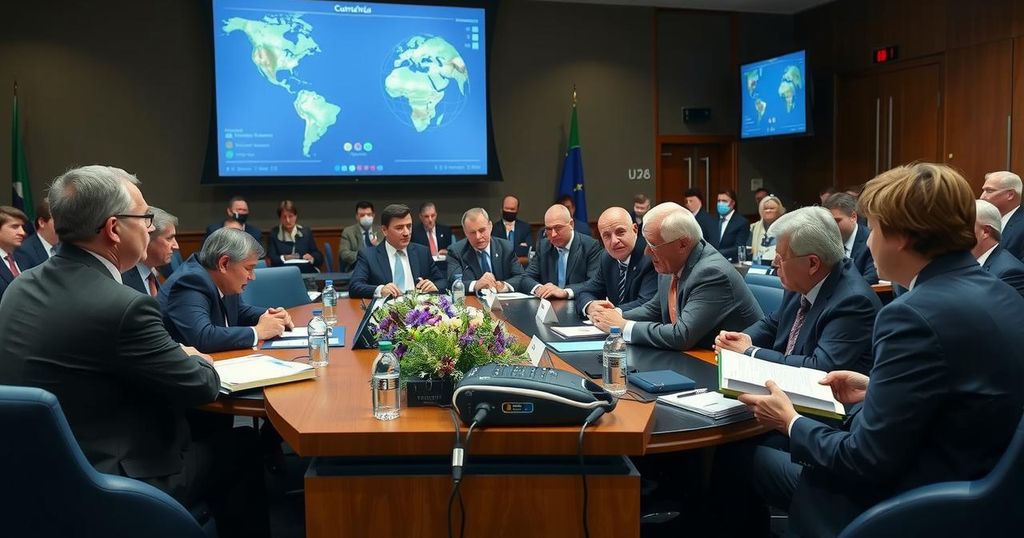Contrasting Climate Approaches: Trump’s Fossil Fuel Agenda vs. European Right-Wing Action

The article discusses the contrasting views on climate action between Donald Trump and several right-wing governments, notably Hungary and Italy, which advocate for strong climate policies while the former maintains a pro-fossil fuel position. It highlights the differences in political ideology, public sentiment, and economic interests that shape these divergent approaches.
Donald Trump’s stark opposition to climate action contrasts significantly with the stances of various right-wing governments globally. Despite Trump’s pro-fossil fuel agenda that includes enhancing oil and gas extraction, leaders such as Hungary’s Prime Minister Viktor Orbán and Italy’s Prime Minister Giorgia Meloni advocate for rigorous climate strategies aimed at achieving net-zero emissions. Orbán recently acknowledged the necessity of balancing economic interests with climate action during his speeches at the COP29 U.N. Climate Summit, emphasizing that European leadership in climate initiatives does not compromise industrial and agricultural prosperity. Unlike the United States, where climate skepticism is fueled largely by political and economic factors, European right-wing parties are increasingly recognizing the urgency of addressing climate change. This acknowledgment is evidenced by Hungary and Italy’s efforts to prioritize strong climate action as a pathway toward economic opportunities. However, the situation remains complex, as some far-right factions resist such measures. The divergent approaches to climate policy reveal significant ideological and resource-based differences between right-wing parties in Europe and the United States.
The politics of climate action vary greatly between continents, particularly exemplified by the differing attitudes of right-wing leaders in Europe and the United States. While U.S. leaders like Donald Trump have historically dismissed the urgency of climate issues and moved towards fossil fuel reliance, European leaders from countries such as Hungary and Italy are actively pushing for climate action. The contrast is attributed not only to differing political ideologies but also to regional economic conditions and public priorities regarding climate change. European nations, largely with fewer fossil fuel resources, are more inclined to invest in climate-friendly renewable energy sources, while the U.S. remains entrenched in fossil fuel production. This divergence illustrates a broader global debate about the future of climate policies amidst varying national interests and perspectives.
In conclusion, the landscape of climate action reveals significant contradictions amongst right-wing governments worldwide. While Trump’s administration continues to prioritize fossil fuel interests, leaders in Hungary and Italy exemplify a growing recognition of climate action’s importance, viewing it as a vital component of national prosperity and security. The differences in resource availability and public sentiment towards climate policies further underscore the complexities of achieving international cooperation on climate change. As the global community navigates these challenges, the evolving perspectives from political leaders will play a crucial role in shaping future climate initiatives.
Original Source: apnews.com






